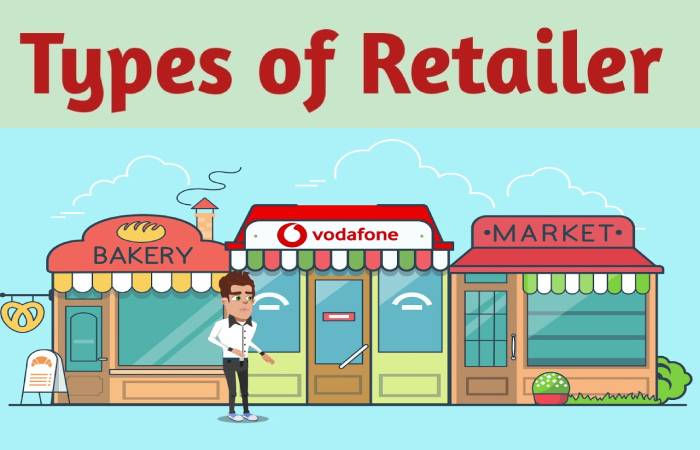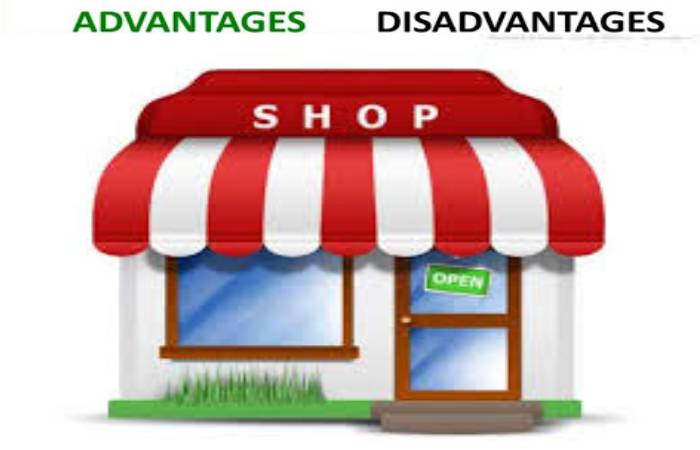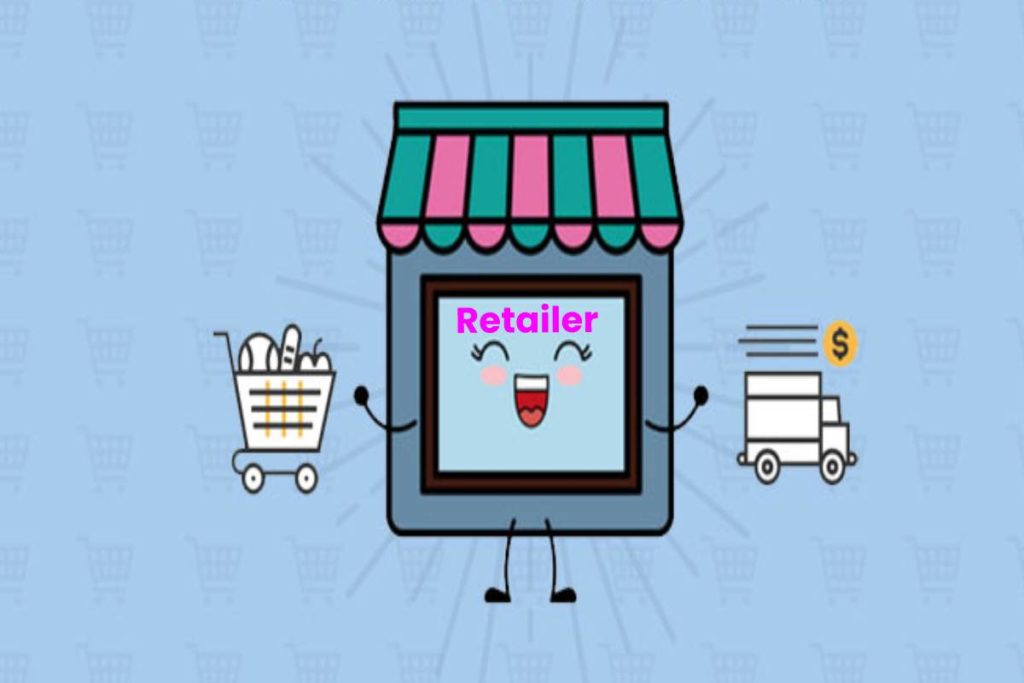Table of Contents
What is a Retailer?
The retailer is the previous link in the distribution chain. That is, it is the one in contact with the final consumer.
The difference between a wholesaler and a retailer is the position they occupy in the distribution chain. Please find out more about what a wholesaler is in our glossary.
The retailer typically buys items in bulk from manufacturers, importers, or wholesalers. The retailer sells its items to the final consumer through a physical store where retail staffing might be needed or online. It is also known as retailing.
The retailer makes his profit by selling the items to the general public at a higher price than the obtained by buying them in bulk.
What are the Types of Retailer?

The retailer can classify in many ways; then we classify them according to the product line:
1. Traditional Retailer
- They are businesses where buyers do not have direct access to the products they are going to purchase but rather depend on an employee to provide them with the goods they want from the retail premises’ warehouses.
- For example, a shoe store or a neighborhood butcher shop, where the consumer himself cannot pick the products.
2. Free-Service Retailer
- They are those places where consumers can take the products themselves.
- In this case, there may be a complete self-service if the customer who makes the payment or an employee for collection can attend it.
- For example, supermarkets are the most common model.
3. Mixed Character Retailer
- In these stores, the products are available to the consumer to choose them freely, but if they wish, they can use an employee to help them in their purchase process if they consider it appropriate.
- An example of a mixed retail space is a clothing store, where in addition to being able to pick it up for themselves, they can also turn to a person to guide them in their decision.
4. Direct Selling Retailer
- It is the retailer that does not sell within commercial premises but instead seeks more directly. For example, through cold door sales, business visits professionals in your sector, or even using product vending machines.
- As can be seen, the retailer’s figure can take many different forms to carry out its commercial activity as the last link between manufacturers and final consumers.
- Even if it fails to make huge profits from every product sold, it is essential in the entire commercial industry.
Characteristics of Retailer
The main characteristics of the retailer are:
- It is the one that is in direct contact with the client.
- Buy your products from the wholesale trade.
- They are the last link in the distribution chain and the penultimate link in the value chain.
- They operate in small amounts.
- The retail trade integrates all those stores and small family businesses that operate in the economy.
Advantages and Disadvantages of the Retailer

- One of the most significant advantages for the consumer is that a retailer tends to offer a closer treatment to its customers and focuses on customer service.
- Also, a retailer is usually much more specialized than a wholesaler, so their advice will be more accurate and professional.
- One of the most significant disadvantages is that retailers add costs to the final product, increasing its selling price.
Main Functions of Retailer
- A retailer expects to provide outstanding services to consumers. Typically, wholesalers get their products from manufacturers. A retailer will then get the products from the wholesaler. It’s that easy.
- A manufacturer goes to great lengths to source raw materials, labor, and produce a finished product. Then a retailer will need to sell the products to the consumer at a recommended retail price.
- All warehousing and warehousing lift to the retailers. It is part of the entire logistics process. But practically speaking, they cannot do it alone. They will need to outsource global services—compliance platforms.
- It maximizes customer satisfaction. There are examples where a retailer has to offer products to the buyer on credit. As a result, they should include a risk management plan not to accumulate so much bad debt. Other than that, product quality must be at the forefront of a merchant’s goals.
- And the logic is pretty simple. To avoid revenues or even chargebacks, which ultimately lower your profit margins. They introduce new products to the market and reach out to all potential customers to educate them about them.
How do Retailer Promote their Products?
- There are so many marketing strategies exposed to retailers. Today, social media has gained traction over traditional advertising approaches.
- Sponsored Facebook and Instagram ads or smooth email marketing are approximately the dominant plans retailers use to advertise their products. In other words, being visible on social media is a winning game plan that traders often count on it.
- What appears to work for most retailers is branding. Having a unique name and logo makes customers trust your products.
- It can source products from distributors and customize packaging as a means of promoting its trademark.
- Flash sales are the novel norm in the e-commerce industry. It is a means to capture the attention of customers. After all, the merchant will sell crops at a low price that attracts customers to make a purchase.
Does a Retailer Requirement a Point of Sale?
- A POS is quite essential to many retail store owners. What proves its importance is the ability to handle customer payments. A mobile payment processor is a must in the retail business. Also, the retailer must use a system that systematically classifies inventory.
- A retailer needs to work with accurate figures, and this is where a powerful retail POS system comes into play. If a retailer chooses to sell items online, then the entire checkout process must be transparent.
- In any retail business, a store owner must record all payment transactions. How else will they know the actual profit margins? In addition to that, an intelligent POS system helps a merchant to get all inventory level updates for all sales.
- While searching for the most suitable POS system, retailers should consider customers who make payments using credit cards.
- They should consider using a card reader to accept all major card brands and easily integrate with the POS system.
Conclusion
A retailer is a seller of articles in small quantities; circumstance implies a trade towards a final consumer. The retailer buys products in abundance, which usually means a lower price, and sells them in small amounts to profit from the difference.
The retail trade is mostly responsible for distributing food and necessities that we can consume; they produce in large quantities in specific places.
Subsequently, the retailers will be in charge of establishing selling points to the general public and selling points in various geographic regions.

